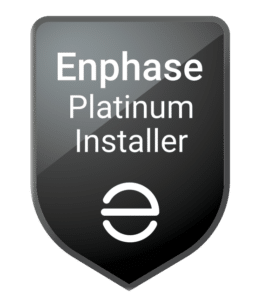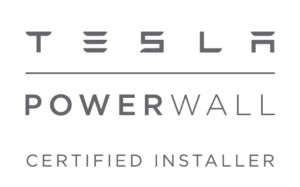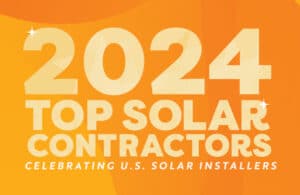Solar loans can make residential solar installation more financially accessible, especially in unpredictable economic times. Owning your system outright will reap you the greatest return on investment, but if the up-front cash outlay is burdensome, loans help provide affordable solar options.
Why use a solar loan instead of leasing your solar array?
Solar loans allow you complete ownership of your solar installation. When you own your solar panels, you receive the federal and state solar tax incentives, as well as the full value of your solar electric system’s energy production. Not only that, but you keep dollars in the local economy here in Massachusetts.
Leasing your roof, however, prevents you from reaping these financial benefits. In addition, you won’t have control over the solar design aesthetic on your roof.
Finally, the monthly payments for a solar loan are likely to be lower than the monthly payments for a solar lease of the same term.
Beware of high fees and interest rates
We recently heard about a homeowner (not one of our customers) who ended up in a solar loan contract that effectively doubled the cost of his system! The reason? A 6% interest rate and high origination fee.
When our clients are pursuing solar loans, we provide them with support to prevent situations like that. We want to make sure you find the solution that works best for you.
Comparison shopping is a good idea before selecting a solar loan. According to Consumer Reports, banks and credit unions may offer better rates than solar-specific loan providers.
Solar loan options
Solar loans may be secured or unsecured.
Secured solar loans require you to provide some sort of collateral, typically your house. Secured loans are less risky for the lender, so they generally have lower credit score requirements and lower interest rates. In most cases, the interest you pay on a secured loan is tax-deductible. However, you will need a good debt-to-income ratio as well as sufficient home equity in order to qualify for a secured loan. Because of this qualification process, secured loans can take some time to finalize.
With an unsecured loan, your house doesn’t act as collateral and the interest isn’t tax-deductible. However, these loans pose an increased risk for lenders, so they typically command higher interest rates. One benefit of an unsecured loan is that you can often be approved within minutes.
Because secured loans have lower interest rates, they offer a better long-term value for homeowners. That said, an unsecured loan might work for someone who doesn’t have enough equity, isn’t worried about the interest tax deduction, and/or wants their loan in a hurry.
Aside from dedicated solar loans, you might also consider a home equity loan or a home equity line of credit to finance your solar installation. And if you’re refinancing your home, ask your home insurer whether they offer solar financing through their mortgage program – some do.
Recommended solar loan providers
We often direct our customers to Cape Cod 5 or UMassFive. Cape Cod 5 offers a secured loan with a low APR. UMassFive Credit Union offers a competitive interest rate with no origination fees. The Mass Solar Loan program, which ended in 2020, aggregated a variety of lenders. This state program was the best option for those who might qualify for income-based loan support. Solar loan options have various terms, so we encourage you to read more about them on their websites.
How to decide which solar loan to use
My Generation Energy has helped clients across Massachusetts navigate the solar loan application process. We are happy to talk through the various options you’ll need to consider before choosing the right solar loan for you. Ultimately, you’ll need to factor in your own financing needs, but we are here to provide you with guidance and information to help make that sel
With an unpredictable economy, solar energy can provide a great deal of benefits to homeowners on Cape Cod and throughout the Greater Boston area. Luckily, solar loans are available that can make residential solar installation more financially accessible. While owning your system outright will reap you the greatest return on investment, the up-front cost can be burdensome, and loans help provide affordable solar options.
My Generation Energy is a leading solar installer in the area, offering decades of experience and trusted local knowledge. We’ve been helping Massachusetts residents embrace solar energy since 2008, both with and without solar loans. Here’s everything you need to know:
Solar Loans vs Solar Leases
Solar loans give you complete ownership of your solar energy system, allowing you to receive federal and state solar tax incentives. Owning your solar panels with a loan also gives you access to the full value of your solar energy production and keeps your dollars in the local economy.
Leasing your panels, however, prevents you from reaping the full financial benefits of solar energy. Since the leasing company will own the solar panels, you won’t be eligible for solar incentives or net metering benefits and your lifetime savings will overall be lower.
Finally, the monthly payments for a solar loan are likely to be lower than the monthly payments for a solar lease of the same term.
Beware of High Fees & Interest Rates
There are several horror stories going around about solar loans with high interest rates up to 6% and outrageous origination fees. If you’re interested in pursuing a solar loan, My Generation Energy will provide support to prevent these situations like that. We’ll help you compare your options and make sure you find the solution that works best for you and your budget. In our experience and according to Consumer Reports, banks and credit unions may offer better rates than solar-specific loan providers.
Solar Loan Options
Solar loans may be secured or unsecured.
- Secured solar loans require you to provide some sort of collateral, typically your house. Since secured loans are less risky for the lender, they generally have lower credit score requirements and lower interest rates. In most cases, the interest you pay on a secured loan is tax-deductible. However, you will need a good debt-to-income ratio as well as sufficient home equity in order to qualify for a secured loan. Because of this qualification process, secured loans can take some time to finalize.
- With an unsecured loan, your house doesn’t act as collateral and the interest isn’t tax-deductible. However, these loans pose an increased risk for lenders, so they typically command higher interest rates. One benefit of an unsecured loan is that you can often be approved within minutes.
Because secured loans have lower interest rates, they offer a better long-term value for homeowners. That said, an unsecured loan might work for someone who doesn’t have enough equity, isn’t worried about the interest tax deduction, and/or wants their loan in a hurry.
Aside from dedicated solar loans, you might also consider a home equity loan or a home equity line of credit to finance your solar installation. And if you’re refinancing your home, ask your home insurer whether they offer solar financing through their mortgage program–some do.
How to Choose a Solar Loan
My Generation Energy has helped clients across Massachusetts navigate the solar loan application process. We are happy to talk through the various options you’ll need to consider before choosing the right solar loan for you.
Ultimately, you’ll need to factor in your own financing needs, but we are here to provide you with guidance and information to help make that selection easy. We often direct our customers to Cape Cod 5 or UMassFive. Solar loan options have various terms, so we encourage you to read more about them on their websites.
- Cape Cod 5 offers a secured loan with a low APR.
- UMassFive Credit Union offers a competitive interest rate with no origination fees.





